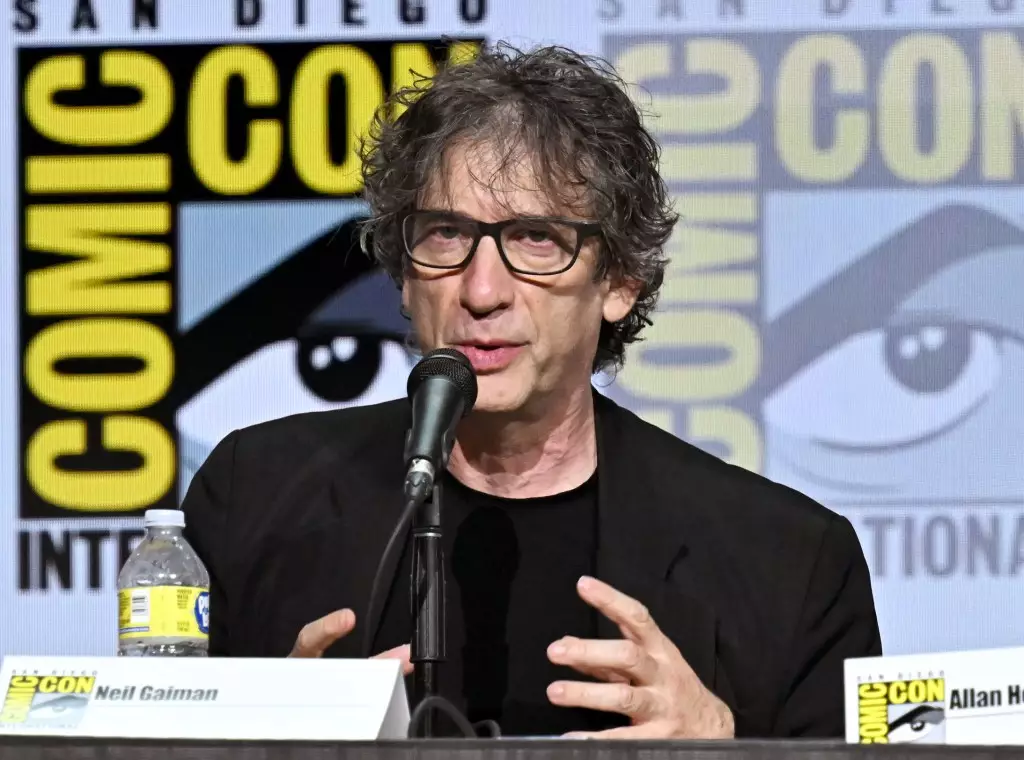Neil Gaiman, an esteemed figure in the literary world known for his groundbreaking contributions to both literature and graphic novels, has recently found himself at the center of significant controversy. Dark Horse Comics made a startling announcement, revealing the cancellation of Gaiman’s “Anansi Boys” comic series in light of sexual assault allegations leveled against him. This decision underscores the complexities and repercussions that can follow serious accusations, even against those with a storied career like Gaiman’s.
The controversy began when U.K.-based Tortoise Media reported detailed accounts from four women, detailing their experiences with the author. These accounts were brought to light during two separate waves in July 2024, compelling Dark Horse Comics to reassess their relationship with Gaiman. The publisher’s public statement highlighted the seriousness with which they regard the allegations, signaling a strong stance amidst growing calls for accountability within the creative industry.
The implications of such allegations are profound, not only for Gaiman personally but also for the broader cultural landscape. The fallout from this news illustrates how the #MeToo movement continues to impact even the most prominent figures in the entertainment industry.
In a response that he shared on his personal blog, Gaiman emphatically denied the allegations, asserting that he has never engaged in non-consensual sexual activity with anyone. He acknowledged moments mentioned in the accounts—briefly recognizing them—but quickly distanced himself from the allegations by stating that some descriptions did not resonate with his experience. Gaiman described himself as “far from a perfect person” but insisted on his commitment to the truth, indicating that while he is prepared to face his imperfections, he will not accept a narrative that he claims is false.
This duality—acknowledging personal flaws while rejecting the core of the allegations—highlights a familiar tension in cases of public figures accused of wrongdoing. Gaiman’s reflections reveal a man grappling with his past actions, even as he maintains his innocence regarding the most serious claims.
The consequences of these allegations extend far beyond Gaiman’s persona. The cancellation of “Anansi Boys” is merely the latest in a series of halted projects connected to the author. Reports of production halting on the adaptation of his renowned work, “The Graveyard Book,” by Disney demonstrate that the implications of this controversy are not confined to comic books but span across different mediums.
Moreover, the popular series “Good Omens,” which Gaiman co-created, will also see a significant alteration in its production. Originally slated for a full third season, the project has been scaled back to a single 90-minute episode, with Gaiman stepping down from his creative role. These developments not only affect the adaptation of his works but also signal a shift in the corporate landscape where brands may distance themselves from potentially damaging associations.
Despite the turmoil, Gaiman remains a prominent figure in modern storytelling. Production on the second season of “The Sandman” for Netflix is set to resume, showcasing a commitment to continuing the work that has garnered both critical and commercial success. However, the projected release for this eagerly awaited season shifts to 2025, indicating that the industry is navigating uncertain waters as it balances artistic integrity and accountability.
As Gaiman’s future unfolds in a transformed landscape, questions about authorship, creativity, and responsibility loom large. While he embodies an essential narrative voice in literature, the surrounding controversies challenge fans and critics alike to reconsider the weight of an artist’s personal conduct alongside their professional achievements.
The unfolding events surrounding Neil Gaiman serve as a stark reminder of the ongoing dialogue regarding accountability in the creative industry. Whether or not Gaiman successfully navigates these turbulent waters will set a precedent for how the industry treats its creators amidst serious allegations. This case spotlights the pivotal intersection between artistry, accountability, and how society chooses to engage with the complexities of human behavior. Only time will tell how Gaiman’s story continues to evolve, but for now, the accountability measures taken by both Dark Horse Comics and the broader industry leave a significant mark on his legacy.

